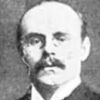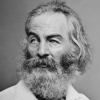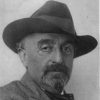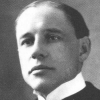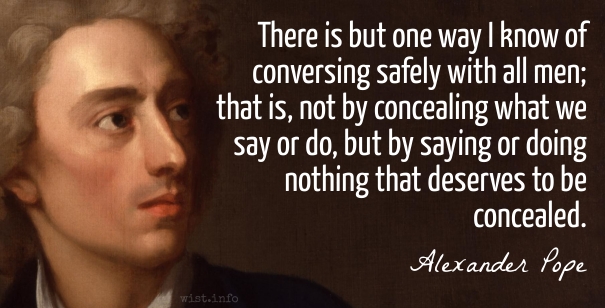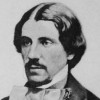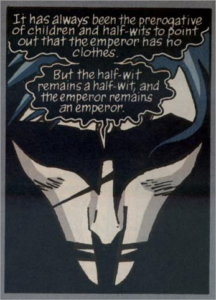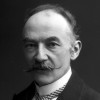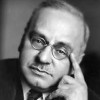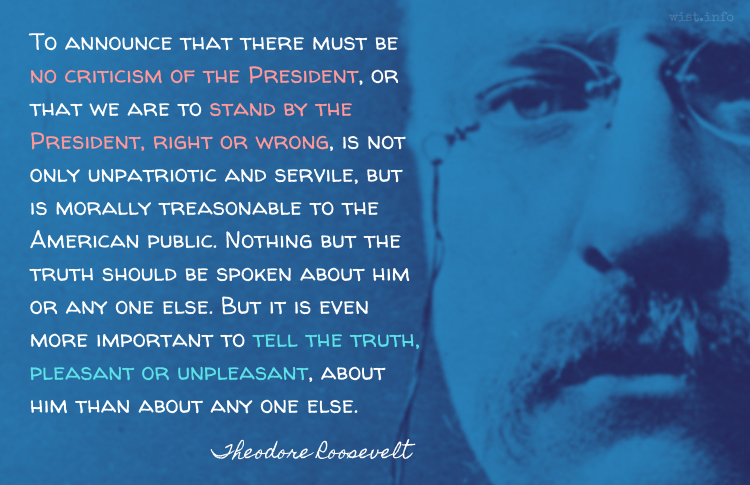Perhaps the greatest rudenesses of our time come not from the callousness of strangers, but from the solicitousness of intimates who believe that their frank criticisms are always welcome, and who feel free to “be themselves” with those they love, which turns out to mean being their worst selves, while saving their best behavior for strangers.
Judith Martin (b. 1938) American author, journalist, etiquette expert [a.k.a. Miss Manners]
Common Courtesy, “Those Who Would Change the Country’s Manners Encounter Citizen Resistance” (1985)
(Source)
Quotations about:
candor
Note not all quotations have been tagged, so Search may find additional quotes on this topic.
Kisses kept are wasted;
Love is to be tasted.
There are some you love, I know;
Be not loath to tell them so.
Lips go dry and eyes grow wet
Waiting to be warmly met,
Keep them not in waiting yet;
Kisses kept are wasted.Edmund Vance Cooke (1866-1932) Canadian poet
“Kisses Kept Are Wasted,” ll. 1-9, Little Songs for Two (1909)
(Source)
Candour’s the cement of friendship.
F. Anstey (1856-1934) English novelist and journalist (pseud. of Thomas Anstey Guthrie)
The Brass Bottle, ch. 1 “Horace Ventimore Receives a Commission” [Ventimore] (1900)
(Source)
Originally published in The Strand Magazine (1900-02).
The natural approach to human relations presumes that to know any person well enough is to love him, and that, therefore, the only human problem is a communication problem. It refuses to admit the possibility that people might be separated by basic, deeply held, genuinely irreconcilable differences — philosophical, political, or religious. Thus, the effort to trivialize etiquette as being a barrier to the happy mingling of souls, actually trivializes intellectual, emotional, and spiritual convictions by characterizing any difference between one person’s and another’s as no more than a simple misunderstanding, easily solved by frank exchanges or orchestrated “encounters.”
Judith Martin (b. 1938) American author, journalist, etiquette expert [a.k.a. Miss Manners]
Common Courtesy, “In the Quest for Equality, Civilization Itself Is Maligned” (1985)
(Source)
Originally published in The New Republic in 1984.
Yes, it is always the best policy to speak the truth — unless, of course, you are an exceptionally good liar.
Jerome K. Jerome (1859-1927) English writer, humorist [Jerome Klapka Jerome]
Idler Magazine, “The Idler’s Club” column (1892-02)
(Source)
But the power
of a man’s will is often powerless:
laughter and tears follow so close upon
the passions that provoke them that the more
sincere the man, the less they obey his will.
[Ma non può tutto la virtù che vuole;
ché riso e pianto son tanto seguaci
a la passion di che ciascun si spicca,
che men seguon voler ne’ più veraci.]Dante Alighieri (1265-1321) Italian poet
The Divine Comedy [Divina Commedia], Book 2 “Purgatorio,” Canto 21, l. 105ff (21.105-108) (1314) [tr. Musa (1981)]
(Source)
(Source (Italian)). Alternate translations:
As each alternate Passion leaves a trace
On the still-varying muscles of the face,
Fictitious oft; but, by the candid mind,
Conceal'd with pain, the dawn of dubious joy
My features wore.
[tr. Boyd (1802), st. 20]
But the power which wills,
Bears not supreme control: laughter and tears
Follow so closely on the passion prompts them,
They wait not for the motions of the will
In natures most sincere.
[tr. Cary (1814)]
But will is not with power entire endued.
Laughter and tears pursue so much the trace
The passion dictates that imprints them there,
Nor follow will in natures most sincere.
[tr. Bannerman (1850)]
But yet the power that wills cannot do all things;
For tears and laughter are such pursuivants
Unto the passion from which each springs forth,
In the most truthful least the will they follow.
[tr. Longfellow (1867)]
But virtue cannot all it would; for laughter and tears follow so much the passion from which each springs, that they least obey will in the most truthful men.
[tr. Butler (1885)]
But all it wishes, will cannot forbear:
For smiles and tears to diverse passion wed,
Upon that passion follow so instinct.
In open natures, will is quite outsped.
[tr. Minchin (1885)]
But the power that wills cannot do everything; for smiles and tears are such followers on the emotion from which each springs, that in the most truthful they least follow the will.
[tr. Norton (1892)]
But the virtue which wills is not all powerful;
for laughter and tears follow so closely the passion from which each springs, that they least obey the will in the most truthful.
[tr. Okey (1901)]
But the power to will cannot do all, for laughter and tears are so close followers on the passions from which they spring that they least follow the will in the most truthful.
[tr. Sinclair (1939)]
But all is not done by the will's decree;
For on the passion wherefrom each is bred
Laughter and tears follow so close that least
In the most truthful is the will obeyed.
[tr. Binyon (1943)]
But will with us is not made one with power;
Tears, laughter, tread so hard upon the heel
Of their evoking passions, that in those
Who're most sincere they least obey the will.
[tr. Sayers (1955)]
But man's will
is not supreme in every circumstance:
for tears and laughter come so close behind
the passions they arise from, that they least
obey the will of the most honest mind.
[tr. Ciardi (1961)]
But the power that wills cannot do everything; for smiles and tears are such close followers on the emotion from which each springs, that in the most truthful they least follow the will.
[tr. Singleton (1973)]
But virtue cannot do everything that it will;
For laughter and tears follow so closely on
The passions from which they respectively proceed,
That they follow the will least in the most truthful.
[tr. Sisson (1981)]
And yet the power of the will cannot do all,
for tears and smiles are both so faithful to
the feelings that have prompted them that true
feeling escapes the will that would subdue.
[tr. Mandelbaum (1982)]
But the power of the will cannot do everything,
for laughter and weeping follow so closely on the passion from which each springs that they follow the will least in those who are most truthful.
[tr. Durling (2003)]
But the virtue that wills is not all-powerful, since laughter and tears follow the passion, from which they spring, so closely, that, in the most truthful, they obey the will least.
[tr. Kline (2002)]
But will power can't do everything it wills.
For tears and laughter follow on so close
to those emotions from which each act springs
that these least follow will in those most true.
[tr. Kirkpatrick (2007)]
But the power that wills cannot do all it wills,
for laughter and tears so closely follow feelings
from which they spring, they least can be controlled
in those who are most truthful.
[tr. Hollander/Hollander (2007)]
But will alone won't stop a human being,
Since laughter and tears are deeply interwoven,
Following hard on emotions which spring them forth,
And when they're truthful have little to do with the will.
[tr. Raffel (2010)]
A bitter-tongued parent cannot teach respect for facts. Truth for its own sake can be a deadly weapon in family relations. Truth without compassion can destroy love. Some parents try too hard to prove exactly how, where and why they have been right. This approach will bring bitterness and disappointment. When attitudes are hostile, facts are unconvincing.
Haim Ginott (1922-1973) Israeli-American school teacher, child psychologist, psychotherapist [b. Haim Ginzburg]
Between Parent and Teenager, ch. 2 “Rebellion and Response” (1969)
(Source)
Sometimes mis-cited to the earlier Between Parent and Child (1965).
Don’t flatter yourselves that friendship authorizes you to say disagreeable things to your intimates. On the contrary, the nearer you come into relation with a person, the more necessary do tact and courtesy become.
Call a jack a jack. Call a spade a spade. But always call a whore a lady. Their lives are hard enough, and it never hurts to be polite.
Questions about the reproductive system should be answered as naturally as ones about the railroad system.
Marcelene Cox (1900-1998) American writer, columnist, aphorist
“Ask Any Woman” column, Ladies’ Home Journal (1946-02)
(Source)
MENENIUS: His nature is too noble for the world.
He would not flatter Neptune for his trident
Or Jove for ‘s power to thunder. His heart’s his mouth;
What his breast forges, that his tongue must vent,
And, being angry, does forget that ever
He heard the name of death.William Shakespeare (1564-1616) English dramatist and poet
Coriolanus, Act 3, sc. 1, l. 326ff (3.1.326-331) (c. 1608)
(Source)
Speaking of the title character.
The truth is often painful and disturbing. Hence if you stick to unalloyed reality, few people will follow you. An American presidential candidate who tells the American public the truth, the whole truth and nothing but the truth about American history has a 100 percent guarantee of losing the elections. The same goes for candidates in all other countries. How many Israelis, Italians or Indians can stomach the unblemished truth about their nations? An uncompromising adherence to the truth is an admirable spiritual practice, but it is not a winning political strategy.
Yuval Noah Harari (b. 1976) Israeli public intellectual, historian, academic, writer [יובל נח הררי]
“Why Fiction Trumps Truth,” New York Times (24 May 2019)
(Source)
The other part of it is [the belief that] if we just totally opened our souls to one another, we would love one another and get along. This trivializes the fact that people have deep and legitimately-held differences. People think, mistakenly, that etiquette means you have to suppress your differences. On the contrary, etiquette is what enables you to deal with them; it gives you a set of rules. On the floor of the Congress, you don’t say, “You’re a jerk and a crook”; you say, “I’m afraid the distinguished gentleman is mistaken about so and so.” Those are the things that enable you to settle your differences, to bring them out in the open. Everything else just starts battles.
Judith Martin (b. 1938) American author, journalist, etiquette expert [a.k.a. Miss Manners]
In “Polite Company,” interview by Hara Estroff Marano, Psychology Today (1998-03)
(Source)
And, oh! whate’er Heaven destined to betide,
Let neither flattery soothe, nor pity hide.
Prepared I stand: he was but born to try
The lot of man; to suffer, and to die.[πέρι γάρ μιν ὀιζυρὸν τέκε μήτηρ.
μηδέ τί μ᾽ αἰδόμενος μειλίσσεο μηδ᾽ ἐλεαίρων,
ἀλλ᾽ εὖ μοι κατάλεξον ὃπως ἤντησας ὀπωπῆς.]Homer (fl. 7th-8th C. BC) Greek author
The Odyssey [Ὀδύσσεια], Book 3, l. 96ff (3.96) (c. 700 BC) [tr. Pope (1725), l. 114ff]
(Source)
Telemachus seeking to learn from Nestor of the fate of his father, Odysseus. Telemachus later repeats these words in seeking news of his father from Menelaus (4.326). (Source (Greek)). Alternate translations:
[T]he unhappy wanderer,
To too much sorrow whom his mother bore.
You then by all your bounties I implore,
[...] that in nought applied
To my respect or pity you will glose,
But uncloth’d truth to my desires disclose
[tr. Chapman (1616)]
[B]orn to calamity.
Let no respect, or pity mitigate
Your story, howsoever sad it be.
Nothing but naked truth to me relate.
[tr. Hobbes (1675), l. 85ff]
For my father at his birth
Was, sure, predestin’d to no common woes.
Neither through pity, or o’erstrain’d respect
Flatter me, but explicit all relate
Which thou hast witness’d.
[tr. Cowper (1792), l. 120ff]
How hath his mother to exceeding teen
borne him! Let no kind thought thy tidings screen;
Paint not the tale through pity.
[tr. Worsley (1861), st. 12]
For sure a woeful wight his mother bore him!
Extenuate naught for shame or pity's sake,
But tell me all, as thou hast chanced to see!
[tr. Bigge-Wither (1869), l. 95ff]
His mother bare him to exceeding sorrow. And speak me no soft words in ruth or pity, but tell me plainly what sight thou didst get of him.
[tr. Butcher/Lang (1879)]
This man, his mother bore him to most exceeding woe --
But have no respect of my sorrow nor be soft and soothing now,
But tell all out unto me, in what wise the man thou hast seen.
[tr. Morris (1887), l. 95ff]
To exceeding grief his mother bore him. Use no mild word, no yield to pity, from regard for me, but tell me fully all you chanced to see.
[tr. Palmer (1891)]
He was a man born to trouble. Do not soften things out of any pity for me, but tell me in all plainness exactly what you saw.
[tr. Butler (1898)]
For beyond all men did his mother bear him to sorrow. And do thou nowise out of ruth or pity for me speak soothing words, but tell me truly how thou didst come to behold him.
[tr. Murray (1919)]
Even from his mother's womb, calamity had marked him for her own. Do not in pity convey to me smooth things, things gentler than the truth: blurt out, rather, all that met your sight.
[tr. Lawrence (1932)]
For if ever a man was born for misery, it was he. Do not soften your account out of pity or concern for my feelings, but faithfully describe the scene that met your eyes.
[tr. Rieu (1946)]
The man was born for trouble. Spare me no part for kindness' sake; be harsh; but put the scene before me as you saw it.
[tr. Fitzgerald (1961)]
His mother bore this man to be wretched. Do not soften it because you pity me and are sorry for me, but fairly tell me all that your eyes have witnessed.
[tr. Lattimore (1965)]
She who gave birth to him gave birth to grief. You need not sweeten anything for me. Forget discretion, set aside your pity: tell me completely -- all you chanced to see.
[tr. Mandelbaum (1990)]
More than all other men, that man was born for pain.
Don't soften a thing, from pity, respect for me --
tell me, clearly, all your eyes have witnessed.
[tr. Fagles (1996)]
He was born to sorrow.
More than any man on earth. And do not,
Out of pity, spare me the truth, but tell me
Whatever you have seen, whatever you know.
[tr. Lombardo (2000), l. 104ff]
For his mother indeed bore him to be woeful. Spare me nothing, extenuate nothing, nor show any pity; tell me all to the end, however it came to your notice.
[tr. Merrill (2002)]
For if ever a man was born to suffer it was he. Do not soften your account out of pity or concern for my feelings, but faithfully describe the scene that met your eyes.
[tr. D C H Rieu (2002)]
More than any other man his mother bore him for wretchedness. Do not let respect or pity for me soften your words, but tell me exactly how you chanced to see him.
[tr. Verity (2016)]
He was surely born to suffer in extraordinary ways. Please do not try to sweeten bitter news from pity; tell me truly if you saw him, and how he was.
[tr. Wilson (2017)]
To unmatched sorrow his mother bore him! And don't, from concern or pity, speak false comfort to me, but tell me exactly what you may have witnessed!
[tr. Green (2018)]
For his mother bore him
to go through trouble more than other men.
Do not pity me or, from compassion,
just offer me kind words of consolation,
but tell me truly how you chanced to see him.
[tr. Johnston (2019), l. 119ff]
At some point I believe one has to stop holding back for fear of alienating some imaginary reader or real relative or friend, and come out with personal truth. If we are to understand the human condition, and if we are to accept ourselves with all the complexity, self-doubt, extravagance of feeling, guilt, joy, the slow freeing of the self to its full capacity for action and creation, both as human being and as artist, we have to know all we can abou each other, and we have to be willing to go naked.
May Sarton (1912-1995) Belgian-American poet, novelist, memoirist [pen name of Eleanore Marie Sarton]
Journal of a Solitary, “January 5th” (1973)
(Source)
Above all, the search after truth and its eager pursuit are peculiar to man. And so, when we have leisure from the demands of business cares, we are eager to see, to hear, to learn something new, and we esteem a desire to know the secrets or wonders of creation as indispensable to a happy life. Thus we come to understand that what is true, simple, and genuine appeals most strongly to a man’s nature.
[In primisque hominis est propria veri inquisitio atque investigatio. Itaque cum sumus necessariis negotiis curisque vacui, tum avemus aliquid videre, audire, addiscere cognitionemque rerum aut occultarum aut admirabilium ad beate vivendum necessarian! ducimus. Ex quo intellegitur, quod verum, simplex sincerumque sit, id esse naturae hominis aptissimum.]
Marcus Tullius Cicero (106-43 BC) Roman orator, statesman, philosopher
De Officiis [On Duties; On Moral Duty; The Offices], Book 1, ch. 4 (1.4) / sec. 13 (44 BC) [tr. Miller (1913)]
(Source)
Original Latin. Alt. trans.:
But of all the properties and inclinations of men, there is none more natural and peculiar to them than an earnest desire and search after truth. Hence it is that our minds are no sooner free from the thoughts and engagements of necessary business, but we presently long to be either seeing, or hearing, or learning of something; and esteem the knowledge of things secret and wonderful as a necessary ingredient of a happy life. Whence it appears that nothing is more agreeable and suited to the nature and minds of men than undisguised openness, truth, and sincerity.
[tr. Cockman (1699)]
The desire and investigation of truth is proper to man. When disengaged from necessary business and cares, we are eager to add to our knowledge by examining for ourselves or listening to others. The discovery of what is secret or wonderful, we are disposed to conceive essential to happiness. Hence, what is true, simple, and undisguised, is best adapted to human nature.
[tr. McCartney (1798)]
Before all other things, man is distinguished by his pursuit and investigation of TRUTH. And hence, when free from needful business and cares, we delight to see, to hear, and to communicate, and consider a knowledge of many admirable and abstruse things necessary to the good conduct and happiness of our lives: whence it is clear that whatsoever is TRUE, simple, and direct, the same is most congenial to our nature as men.
[In John Frederick William Herschel, A Preliminary Discourse on the Study of Natural Philosophy, Epigraph (1830)]
The distinguishing property of man is to search for and to follow after truth. Therefore, when relaxed from our necessary cares and concerns, we then covet to see, to hear, and to learn somewhat; and we esteem knowledge of things either obscure or wonderful to be the indispensable means of living happily. From this we understand that truth, simplicity, and candour, are most agreeable to the nature of mankind.
[tr. Edmonds (1865)]
The research and investigation of truth, also, are a special property of man. Thus, when we are free from necessary occupations, we want to see, or hear, or learn something, and regard the knowledge of things either secret or wonderful as essential to our living happily and well.
[tr. Peabody (1883)]
The distinctive faculty of man is his eager desire to investigate the truth. Thus, when free from pressing duties and cares, we are eager to see or hear, or learn something new, and we think our happiness is incomplete unless we study the mysteries and the marvels of the universe.
[tr. Gardiner (1899)]
The first duty of man is the seeking after and the investigation of truth.
[ed. Harbottle (1906)
Inquiry into and searching for truth are primary characteristics of mankind. So when we are free from business obligations and other preoccupations, we become eager to see something new, to hear and learn something; we begin to think that knowledge about the mysteries and wonders of the world is necessary to a happy life.
[tr. Edinger (1974)]
How beautiful is candor! All faults may be forgiven of him who has perfect candor.
One odd thing about foreign-policy professionals is that for all their sophistication, they tend to think the way to communicate with allies and potential allies is to compliment and sooth, compliment and soothe. But that isn’t polite, it’s patronizing, and to patronize is to insult. Candor is a compliment; it implies equality. It’s how true friends talk.
Candor is always a double-edged sword; it may heal or it may separate.
Wilhelm Stekel (1868-1940) Austrian physician, psychologist
Marriage at the Crossroads (1931)
(Source)
For virtue, not secrecy, is sought by good men.
[Honesta enim bonis viris, non occulta quaeruntur.]
Marcus Tullius Cicero (106-43 BC) Roman orator, statesman, philosopher
De Officiis [On Duties; On Moral Duty; The Offices], Book 3, ch. 9 (3.9) / sec. 38 (44 BC) [tr. Edmonds (1865)]
(Source)
(Source (Latin)). Alternate translations:
For good men desire to be virtuous and honest, and not to be secret, that so they may sin without danger.
[tr. Cockman (1699)]
What is honorable, and not what is concealed, is the object of pursuit with wise men.
[tr. McCartney (1798)]
For it is right things, not hidden things, that are sought by good men.
[tr. Peabody (1883)]
The good man seeks to do what is right, not to hide what he does.
[tr. Gardiner (1899)]
For good men aim to secure not secrecy but the right.
[tr. Miller (1913)]
Good men seek right conduct, not conduct that has to remain concealed.
[tr. Edinger (1974)]
Honorable things, not secretive things, are sought by good men.
Let none of us delude himself by supposing that honesty is always the best policy. It is not.
William Ralph Inge (1860-1954) English prelate [Dean Inge]
Speculum Animae, Part 2, “Sunday Morning,” address, Cambridge (15 Jan 1911)
(Source)
Inge's argument is not that honesty is not the most virtuous course, but that it is not always the most secularly advantageous course, and that such disadvantage is one of the costs of maintaining Christian virtue.
DUKHAT: When others do a foolish thing, you should tell them it is a foolish thing. They can still continue to do it, but at least the truth is where it needs to be.
Never apologize for showing feeling, my friend. Remember that when you do so, you apologize for truth.
Benjamin Disraeli (1804-1881) English politician and author
Contarini Fleming, ch. 13 (1832)
(Source)
The one condition coupled with the gift of truth is its use.
Ralph Waldo Emerson (1803-1882) American essayist, lecturer, poet
“The Method of Nature,” speech, Waterville College, Maine (1841-08-11)
(Source)
I believe it is better to tell the truth than to lie. I believe that it is better to be free than to be a slave. And I believe that it is better to know than to be ignorant.
H. L. Mencken (1880-1956) American writer and journalist [Henry Lewis Mencken]
“What I Believe,” sec. 6, Forum and Century (Sep 1930)
(Source)
Ryunac, notwithstanding the bow, appeared unhappy with the answer. “You perceive,” he said, “that this answer is not likely to make me love you.”
“Well, but it is the truth, and I have been told that the truth has always some value.”
“Indeed it has value. So much so, that it should not be squandered uselessly; especially when doing so can be dangerous.”
Our loyalty is due entirely to the United States. It is due to the President only and exactly to the degree in which he efficiently serves the United States. It is our duty to support him when he serves the United States well. It is our duty to oppose him when he serves it badly. This is true about Mr. Wilson now and it has been true about all our Presidents in the past. It is our duty at all times to tell the truth about the President and about every one else, save in the cases where to tell the truth at the moment would benefit the public enemy.
Give me the avow’d, the erect, the manly foe,
Bold I can meet — perhaps may turn his blow;
But of all plagues, good Heaven, thy wrath can send,
Save, save, oh! save me from the Candid Friend!
If someone knows of a problem and conceals it from me, I get more upset from that than from the problem itself. I tell our people time and time again: Bad news first.
No one shows himself as he is, but wears his mask and plays his part. Indeed, the whole of our social arrangements may be likened to a perpetual comedy; and this is why a man who is worth anything finds society so insipid, while a blockhead is quite at home in it.
[Allerdings zeigt Keiner sich wie er ist, sondern Jeder trägt eine Maske und spielt eine Rolle. — Ueber haupt ist das ganze gesellschaftliche Leben ein fortwährendes Komödienspielen. Dies macht es gehaltvollen Leuten insipid; während Plattköpfe sich so recht darin gefallen.]
Arthur Schopenhauer (1788-1860) German philosopher
Parerga and Paralipomena, Vol. 2, ch. 26 “Psychological Observations [Psychologische Bemerkungen],” § 315 (1851) [tr. Saunders (1890)]
(Source)
(Source (German)). Alternate translation:
It is quite certain that no one shows himself as he is, but that each wears a mask and plays a role. In general, the whole of social life is a continual comedy, which the worthy find insipid, whilst the stupid delight in it greatly.
[tr. Dircks (1897)]
No one reveals himself as he is; we all wear a mask and play a role.
[tr. Hollingdale (1970)]
It is certain that no one shows himself as he is, but everyone wears a mask and plays a part. Generally speaking, the whole of our social life is the continuous performance of a comedy. This renders it insipid for men of substances and merit, whereas blockheads take a real delight in it.
[tr. Payne (1974)]
A Man that should call everything by its right Name, would hardly pass the Streets without being knock’d down as a common Enemy.
George Savile, Marquis of Halifax (1633-1695) English politician and essayist
“Of Caution and Suspicion,” Political, Moral and Miscellaneous Thoughts and Reflections (1750)
(Source)
There are very few honest friends — the demand is not particularly great.
[Es gibt wenig aufrichtige Freunde. Die Nachfrage ist auch gering.]
Marie von Ebner-Eschenbach (1830-1916) Austrian writer
Aphorisms [Aphorismen], No. 528 (1880) [tr. Scrase & Mieder (1994)]
(Source)
Deceive not thy Physitian, Confessor, nor Lawyer.
George Herbert (1593-1633) Welsh priest, orator, poet.
Jacula Prudentum, or Outlandish Proverbs, Sentences, &c. (compiler), # 105 (1640 ed.)
(Source)
DREAM: It has always been the prerogative of children and half-wits to point out that the emperor has no clothes. But the half-wit remains a half-wit, and the emperor remains an emperor.
Neil Gaiman (b. 1960) British author, screenwriter, fabulist
Sandman, Book 9. The Kindly Ones, # 60 “The Kindly Ones: 4” (1994-06)
(Source)
If all hearts were open and all desires known — as they would be if people showed their souls — how many gapings, sighings, clenched fists, knotted brows, broad grins, and red eyes should we see in the market-place!
KATHERINE: Out with it boldly. Truth loves open dealing.
William Shakespeare (1564-1616) English dramatist and poet
Henry VIII, Act 3, sc. 1, l. 44 (3.1.44) (1613)
(Source)
A candor affected is a dagger concealed.
Marcus Aurelius (AD 121-180) Roman emperor (161-180), Stoic philosopher
Meditations, Book 11, #15 [tr. Staniforth (1964)]
(Source)
Alternate translations:
- "But the affectation of simplicity is nowise laudable." [tr. Casaubon (1634), #14]
- "An affectation of being real, is an untoward pretence." [tr. Collier (1701)]
- "But the affectation of simplicity is like a crooked stick." [tr. Long (1862)]
- "An affectation of sincerity is a very dagger." [tr. Zimmern (1887)]
- "But the affectation of simplicity is like a razor." [tr. Farquharson (1944)]
- "But false straightforwardness is like a knife in the back." [tr. Hays (2003)]
The truth is often a terrible weapon of aggression. It is possible to lie, and even to murder with the truth.
Man is least himself when he talks in his own person. Give him a mask, and he will tell you the truth.
The President is merely the most important among a large number of public servants. He should be supported or opposed exactly to the degree which is warranted by his good conduct or bad conduct, his efficiency or inefficiency in rendering loyal, able, and disinterested service to the nation as a whole. Therefore it is absolutely necessary that there should be full liberty to tell the truth about his acts, and this means that it is exactly as necessary to blame him when he does wrong as to praise him when he does right. Any other attitude in an American citizen is both base and servile. To announce that there must be no criticism of the President, or that we are to stand by the President, right or wrong, is not only unpatriotic and servile, but is morally treasonable to the American public. Nothing but the truth should be spoken about him or any one else. But it is even more important to tell the truth, pleasant or unpleasant, about him than about any one else.
Theodore Roosevelt (1858-1919) American politician, statesman, conservationist, writer, US President (1901-1909)
“Sedition, A Free Press, and Personal Rule,” Kansas City Star (7 May 1918)
(Source)
Reprinted in "Lincoln and Free Speech," The Great Adventure (1926).
If there is one thing upon this earth that mankind love and admire better than another, it is a brave man — it is the man who dares to look the devil in the face and tell him he is a devil.
James A. Garfield (1831-1881) US President (1881), lawyer, lay preacher, educator
(Attributed)
(Source)
Quoted in The Phrenological Journal (Dec 1881).



